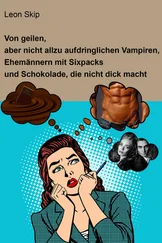“Maybe some kid’s too embarrassed to return the books.”
“Still, it’s just so selfish. I mean, a library’s for everyone. I mentioned the incident to Pastor Eversall, and he got word out through church bulletins. Then there’s the gossip route, comes useful for such purposes. No reward and no punishment, that was the best policy, I felt. Just leave the books on the front stoop. Who cares as long as they’re returned. But so far they haven’t been.”
“I go to yard sales all around the province,” I said. “I like to go to used-book stores. I’ll keep an eye out.”
“You’d need the titles for that, wouldn’t you.”
“Oh, yes, what was I thinking? The titles.”
She disappeared for a few minutes. When she returned she had the piece of paper on which she’d written the titles.
“I took up a lot of your time today,” I said.
“It’s my job to have my time taken up. By library business.”
I put the list in my shirt pocket, and when I got back to the cottage, I tacked it to the corkboard above the telephone in the kitchen.
Time May Be Going Not in a Straight Line
I CONTINUE TO ORGANIZE and file Elizabeth’s notes; I want them all readily available should she request something. Just this morning I found notes marked “Test of Courage,” which included the following passage from The Victorian Chaise-Longue:
Time may be going not in a straight line but in all directions and in no direction, and God may have changed the universe so that it is my body that lies here and no dream, or not my body and still a dream from which I shall be freed.
The test of courage is still valid, said her conscience, you must know, you must look. So she lifted her head and looked down at her body.
There, framed by the crumpled clothes, set on ribs barely covered with skin, rose two small breasts. My breasts? cried Melanie, or not my breasts? Dare I touch them, these breasts that may be mine and alive, or will they crumble, will they rot if I touch them with my living hands, my hands on long-dead breasts? These are whiter than mine, she said, smaller, sadder than mine, and in a convulsive movement she laid her hands beneath them and they did not rot, small hot living breasts, and, pulsing through them, the too-fast-beating heart.
One night in the Essex Hotel, Elizabeth came to bed quite late but I was still awake, reading, which book I can’t recall. “What I love most deeply about Marghanita Laski’s novel,” she said, “is how you discover the relationship between unforeseen psychological incidents and the memories they cause, and how Melanie finally realizes what is happening to her. It’s all so upsetting and so exciting and so strange. Some days, it’s like I live in this book and at night I visit us here in the hotel. Do I seem locatable to you, darling? Am I all present and accounted for? Because if I’m not, I’ll toss this goddamn novel in the trash and do something else. I want to be here with you. With us. Am I?”
“You can’t get through this dissertation, Elizabeth, without being preoccupied. You want to teach at university. How else can you go about things but the way you’re already doing?”
“The part I’ve been most obsessed with recently”—she picked up the novel from her desk and read the above paragraphs—“it’s like Melanie exists between being a woman and the ghost of a woman. It’s something in between. I have to think it through.”
Elizabeth lifted her nightgown over her head. She drew my hands to her breasts. “Just touch, here.” She had her eyes closed. It was as if she was trying not only to banish the paragraphs, but to make herself be locatable.
“With your mouth now,” she said.
I PRACTICED TO THE Boswell Sisters album, usually when Elizabeth was at the library. I even purchased a used herringbone sports coat at Harold’s Haberdashery (whose sign read, A Touch of the Old Country ) on Sackville Street. “All first-time customers get a tie thrown in gratis,” Harold himself said. I was wearing the sports coat when Elizabeth came back from some errand or other. We moved the chaise longue aside and practiced the lindy. “I’d say we’re somewhere between intermediate and advanced,” she said when we sat down for a late dinner. “Though I’ve never seen advanced.”
Then came the fifth lesson. It had been two weeks since the last one. Arnie Moran had, according to the note he left in our hotel mail slot, “suffered the grippe” and had had to postpone the previous week’s lesson. This night, Elizabeth and I got all gussied up and had a glass of wine before going down to the ballroom.
On the bandstand Arnie Moran was facing away from the students. When he turned, we saw that his nose was heavily bandaged, and under the bandage was a metal clamp of some sort. Elizabeth said, “That doesn’t look like the grippe to me.” He stepped up to the microphone and said, “Yowza! Yowza! Yowza! I’m risen up from my sickbed and raring to go! Let’s cut a rug!”
Once the music started, it struck me that Arnie had become more aggressively exacting in his hands-on instructions. Twice he cut in on couples, exiling the man rather crudely and being very critical of the woman’s steps. When he said to Elizabeth, “You look like you have a stomachache — happy thoughts now, happy heart,” Elizabeth said, “Back off!”
Arnie did back off, but he didn’t like it one bit. When he got to the microphone he offered a comment: “A few lessons under their belt and some people think they’re ready for a dance competition! Tsk tsk tsk. ” Though it sounded only mildly petulant, his reprimand set a negative tone for the remainder of the lesson.
He lightened up a little at the end, saying into the microphone, “You’re the best group I’ve had this year. Yes, sir!” (Of course we were the only group he’d had.) Then he winced and touched his nose and, as he had done for the first four lessons, punched in a slow love ballad by Patti Page on the jukebox. Elizabeth and I clung tightly to each other. “I’d do it with you standing up right here, right now,” she whispered in my ear, “but it’d lack a sense of privacy, don’t you think?”
“Maybe just a little.”
When the song ended, everyone applauded and left the room. Arnie Moran unplugged the microphone, packed up all his accoutrements, and pushed the bandstand to the corner. He was now concentrating on his financial ledger. Elizabeth and I walked to the door. “I feel like asking Arnie Moran — but I won’t,” Elizabeth said. “I feel like asking him if he’s going to press charges against the creep Alfonse Padgett. The grippe my sweet ass!”
“You don’t know that Padgett did that to his nose,” I said.
“Who else?”
“I guess you’re right.”
“Want to go to Cyrano’s?”
“In your black dress and in my herringbone?”
“I’m sure Marie Ligget will recognize us. So nice, isn’t it, how she gives us a second espresso for free when she’s on the night shift, like she is tonight. We’re lucky to have a friend like her.”
What I’ve Been Saying for Months and Months
With Dr. Nissensen, May 16, 1973:
As soon as I entered Dr. Nissensen’s office, I said, “The librarian at the Port Medway Library mentioned that eleven books went missing. Around a year ago.”
“The question I must ask now: is it inevitable, in your mind, that these are the same books Elizabeth lines up on the beach?”
I said, “One of your favorite phrases is ‘Be wary when the only option one allows is for a fabrication to become a fact.’”
“I quoted that from—”
“Well, you’re not a novelist. I don’t expect you to say things in an original way.”
Читать дальше












